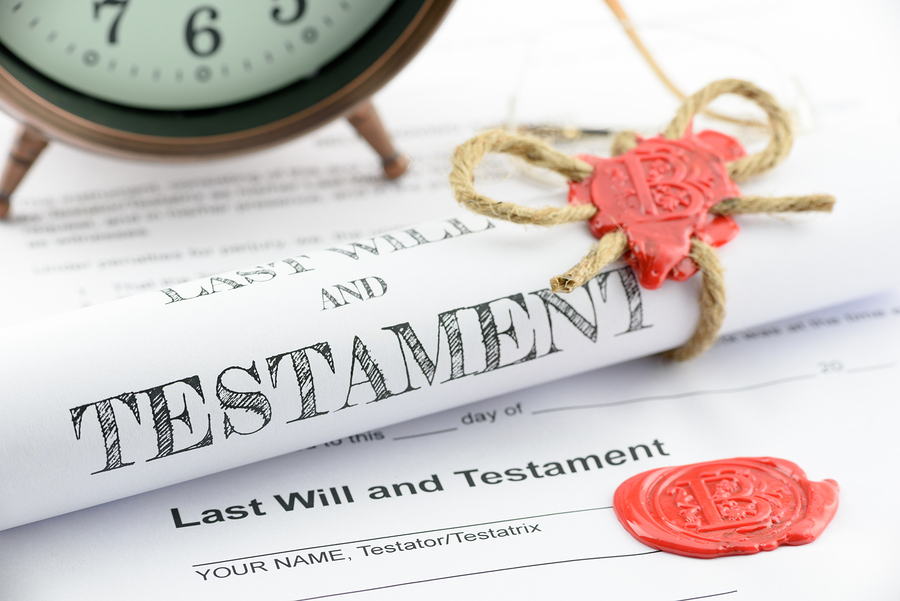Some consider that legal cost associated with having a Will properly prepared by a qualified lawyer is high and opt out to prepare a document to communicate their wishes themselves.
For those individuals, this article is a word of caution for such decision may be a cheap way to expensive litigation for your estate.
What Is Holograph Will or Codicil?
In Ontario, a document prepared by an individual themselves to communicate their wishes is referred to as a Holograph Will or Codicil, if the document is an amendment or addition to the Will, and the person writing it a Testator.
A Holograph Will or Codicil, may be recognized as a testamentary document.
However, a Holograph Will, or Codicil, would need to be proved in Court to be valid, and if family members disagree on the meaning of some text in such a document or where there are mistakes, inconsistencies or ambiguity, litigation costs may be high and family dispute unavoidable.
On the other hand, a Will properly prepared by a qualified lawyer that complies with the requirements set out in the Succession Law Reform Act, R.S.O. 1990, c. S.26[1] and Estates Act, R.S.O. 1990, c. E.212[2] is valid and is less likely to be contested by family members for ambiguity.

For those who may nevertheless wish to prepare their own testamentary document, keep in mind the following key formalities that must be complied with for a Holograph Will, or Codicil, to be found valid in the Ontario Court of Law.
In Ontario, pursuant to s. 6 of the Succession Law Reform Act[3], to make a valid Holograph Will a testator must write it wholly in their own handwriting and signature.
It is a very strict requirement.
A document that is either typed out or prepared by another person and then signed by the testator will not be found to be a valid Holograph Will.
Another important feature of a Holograph Will recognized by the Ontario Courts is that it must be a final Will such that it “contain a deliberate or fixed and final expression of intention as to disposal of property on death.”[4] The language of the testamentary document must clearly express the final intention of the testator to dispose of all their property on death. Otherwise, the document prepared by the testator may be interpreted to be a draft of their wishes.
This was the situation in a recent decision of Ludlow v. Clubbe [5], where the children of late Mr. Ludlow argued whether the document their father left behind was a Holograph Codicil (addition) to his Will setting out the final intention or only a draft of his wishes.
While the circumstances of the Ludlow v. Clubbe case raise several topics for discussion, including whether adding other people to the title of a property is an effective estate planning tool, for the purpose of this article I will focus on the main issue addressed by the Ontario Court.
On a motion the Court considered whether a handwritten note written out wholly in Mr. Ludlow’s handwriting, dated and signed, and left in an envelope, was a valid holograph document, a Codicil, which changed directions for the distribution of his property from what was set out in Mr. Ludlow’s Will prepared by his lawyer and executed by Mr. Ludlow three years before his death.[6]
The Court ultimately decided that the document was a valid Holograph Codicil and relied on the following facts.
In 2012, Mr. Ludlow executed a Will which was prepared by his lawyer.
Pursuant to the Will, Mr. Ludlow left his Estate to be divided equally between his three of four children, namely Bob, Kathy and Susan.
At the same time, in 2012 Mr. Ludlow conveyed title of the family cottage on Healy Lake in Mactier, Ontario to himself and his two children, Bob and Kathy, as joint tenants to reduce the estate administration fees and dues on death.
Subsequently, Mr. Ludlow wanted to change ownership of the cottage property by adding his daughter Susan on title, which proved to be difficult to accomplish because his son, Bob, refused to cooperate and refused to sign the transfer changing the ownership to add Susan to the title of the cottage property, such that Mr. Ludlow, Kathy, Bob and Susan together would be listed on title.
The Court had found that as a result of Bob refusing to sign the transfer documents to add Susan on title to the cottage property Mr. Ludlow considered making changes to his Will or breaking the joint tenancy.
In finding that Mr. Ludlow’s handwritten note established his final “testamentary intention … to leave Susan money from his Estate to compensate her for not sharing in the Cottage in priority to the 1/3 division between his three children”[7] , the Court denied Bob’s argument that the handwritten note left by Mr. Ludlow was a mere reflection of his father’s deliberations of what changes he was thinking to make with his lawyer.[8]
While the amount of legal costs that were incurred by all parties involved in Ludlow v. Clubbe is not known, legal costs were incurred, nonetheless. Often litigation costs substantially exceed the legal cost of drafting a Will or a Codicil with a qualified lawyer.
The best way to make sure that your Estate is distributed in accordance with your wishes is to sit down with a qualified lawyer and discuss your plans.
If you’re looking for skilled and experienced lawyers in Vaughan or lawyers in Toronto, Hummingbird Lawyers LLP has offices at each location for your convenience.
Contact our team of Will lawyers Toronto to get a quote to make a Will.
If you have questions about Holograph Will or Codicil Will, please contact:
Tracey Jones, Law Clerk
Email: info@hummingbirdlaw.com
Phone: 905 731 1911
Related Articles
References and Footnotes
- Succession Law Reform Act, R.S.O. 1990, c. S.26 ↩
- Estates Act, R.S.O. 1990, c. E.21 ↩
- Supra note 1, at s. 6. ↩
- Ludlow v. Clubbe, 2019 ONSC 941 S.C.J at para. 13 citing with approval Bennett v. Toronto ↩
- Ludlow v. Clubbe, 2019 ONSC 941 S.C.J. [Ludlow]. ↩
- Ludlow, ibid at para 4, 17. ↩
- Ludlow, ibid at para 16. ↩
- Ludlow, ibid at para 15. ↩


